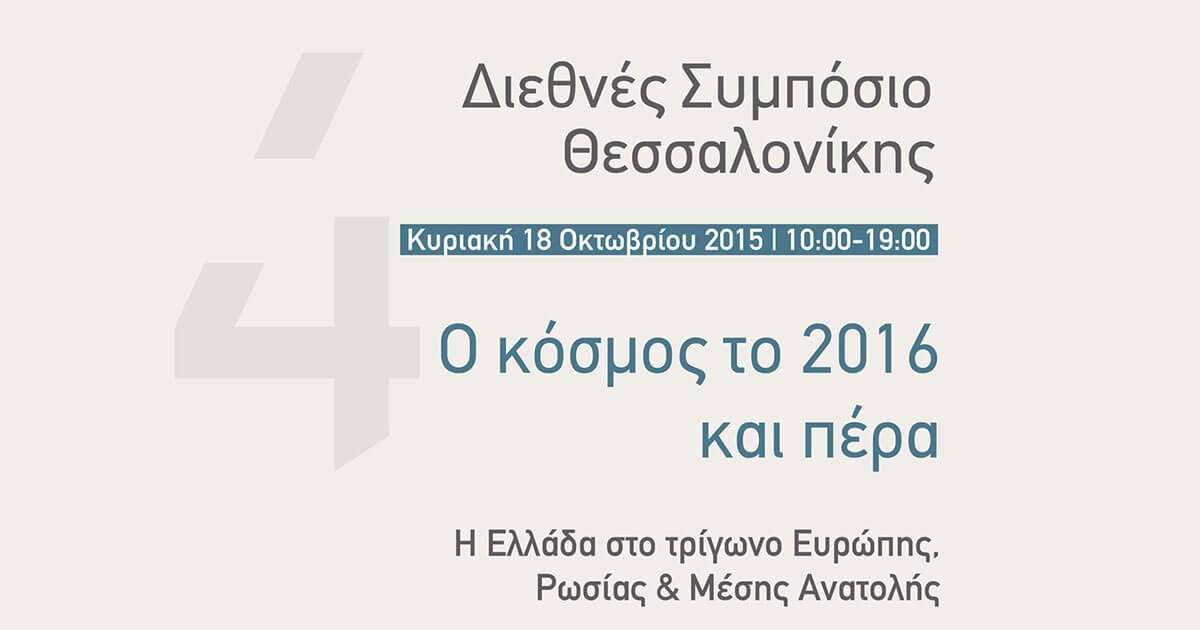Agenda
4th Thessaloniki International Symposium in World Affairs
The world in 2016 and beyond
Thessaloniki, October 18, 2015
09:30 – Registration
10:00 – 10:30 – Welcoming remarks
- Dimitris Keridis, Director, Navarino Network
- Stavros Andreadis, Chairman, The Cultural Society of Entrepreneurs of Northern Greece
- Giannis Boutaris, Mayor of Thessaloniki
- Susanna Vogt, Head of Greece Office, Konrad-Adenauer-Stiftung
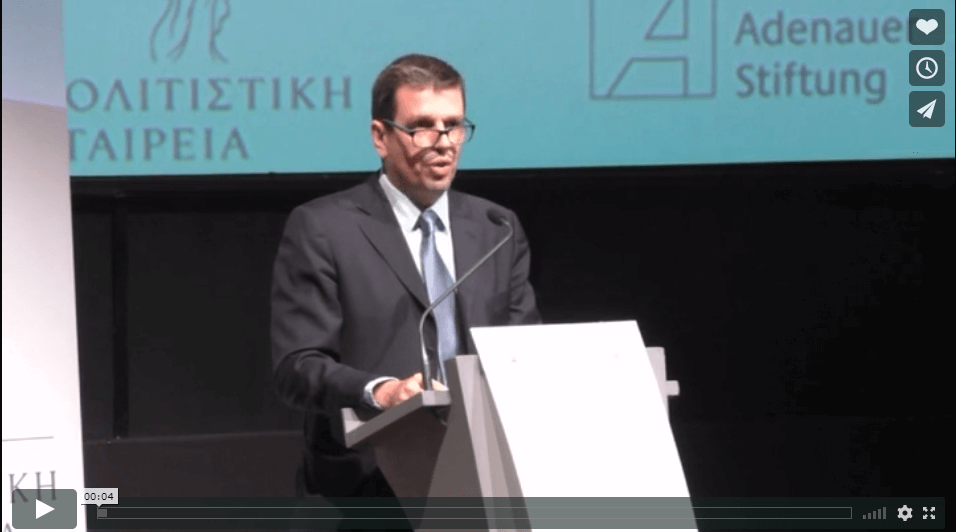
10:30 – 11:30 – ” The state of the European Union “
- Key-note address by:Joseph H. H. Weiler
President, European University Institute, Florence
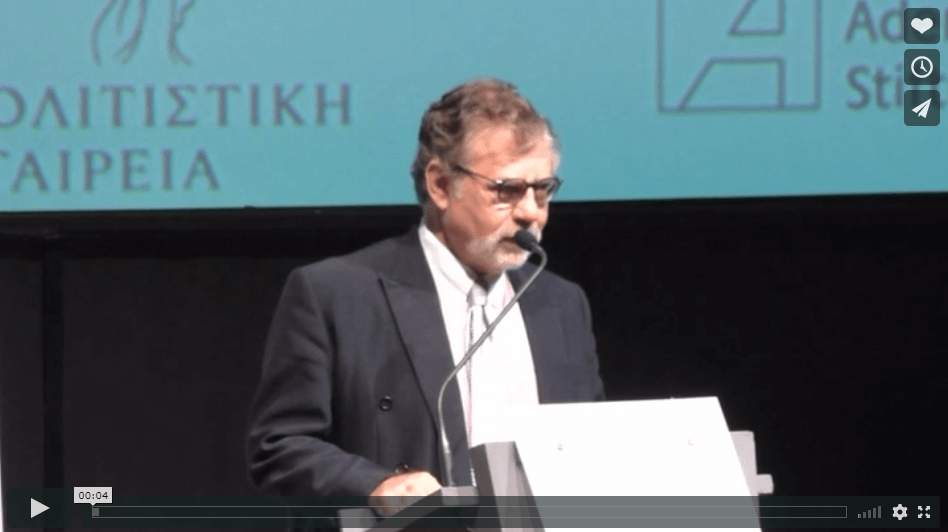
Speaker’s short bio
J.H.H. Weiler is President of the European University Institute (EUI). Previously he served as Professor of Law and Jean Monnet Chair at Harvard Law School and subsequently as Director of the Jean Monnet Center at NYU School of Law. Weiler is Editor-in-Chief of the European Journal of International Law (EJIL) and the International Journal of Constitutional Law (ICON).
Weiler is also an Honorary Professor at University College London, the University of Copenhagen, and the National University of Singapore, and Co-Director of the Academy of International Trade Law in Macao, China.
He holds a PhD. in European Law from the EUI, Florence and honorary degrees from various European universities. He is the author of several books and articles in the field of European integration, notably The Constitution of Europe: “Do the new clothes have an emperor?” (Cambridge University Press, Cambridge, U.K., translated into 7 languages) and Un’Europa cristiana: Un saggio esplorativo (BUR Saggi, Milano, translated into 9 languages).
11:30 – 12:30 – Greece and the eurozone
- Joan Hoey,
Senior Analyst & Regional Editor-Europe, The Economist Intelligence Unit, London
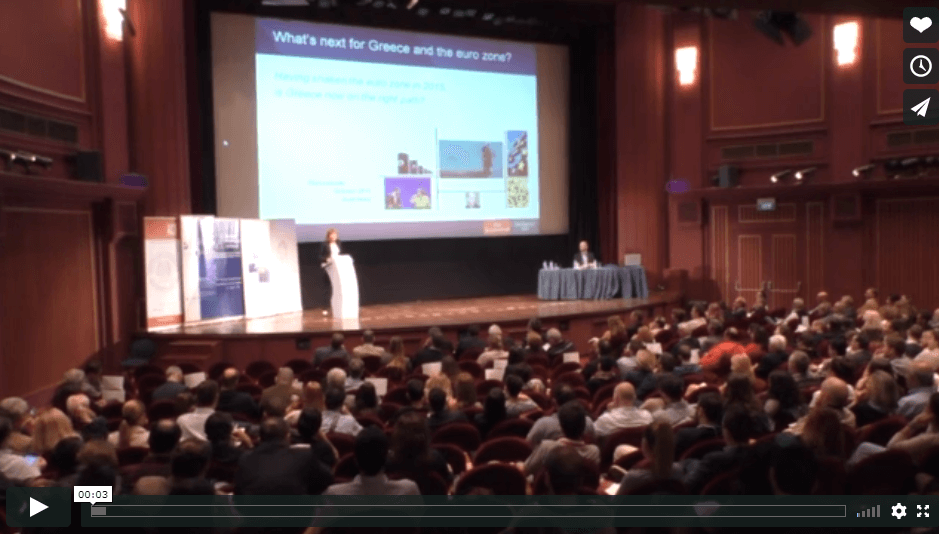
Speaker’s short bio
Joan Hoey is a Regional Editor in the Europe team at the Economist Intelligence Unit (EIU), the business information arm of The Economist Group. She is the Senior Analyst for Greece, Romania and Serbia. Joan specialises in the politics and economics of Greece, the Balkans and Eastern Europe; political development and political risk; country risk; geopolitics; democracy; state-building; post-communist transition.
Joan is the Editor of the EIU’s flagship annual Democracy Index. The 2014 edition, Democracy and its discontents, was published in January 2015. Joan also authored a special report for the BBC’s Democracy Day events on January 20th 2015, entitled Democracy on the Edge: Populism and Protest. Both reports are freely available on the EIU website (www.eiu.com). Joan attended Sussex University (BA Hons First Class History), Middlesex University (Industrial Relations) and the London School of Economics (International Relations).
The eurozone after the crisis
- Daniel Gros
Director, Centre for European Political Studies, Brussels
[recorded message]
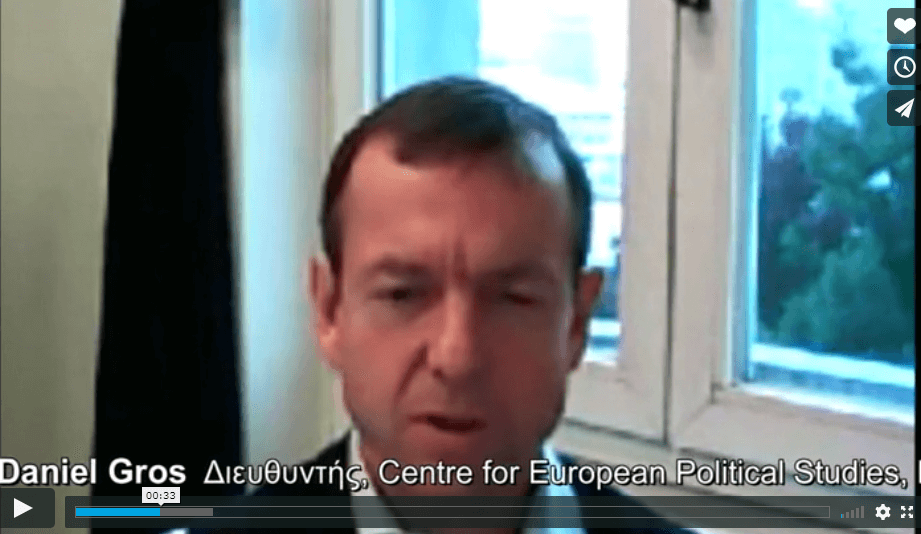
Speaker’s short bio
Daniel Gros has been the Director of the Centre for European Policy Studies (CEPS) since 2000. Among other current activities, he serves as adviser to the European Parliament and is a member of the Advisory Scientific Committee of the European Systemic Risk Board (ESRB) and the Euro 50 Group of eminent economists. He has held past positions at the IMF and the European Commission, and served as advisor to several governments, including the UK and the US at the highest level. He is editor of Economie Internationale and International Finance. Daniel Gros holds a PhD. in economics from the University of Chicago and is the author of several books and numerous articles in scientific journals. His main areas of expertise are the European Monetary Union, macroeconomic policy, economics of transition to a market economy, public finance, banking and financial markets.
12:30 – 13:15 – NATO after Ukraine
- Ambassador Thrassyvoulos Stamatopoulos,
Assistant Secretary General for Political Affairs and Security Policy, Brussels
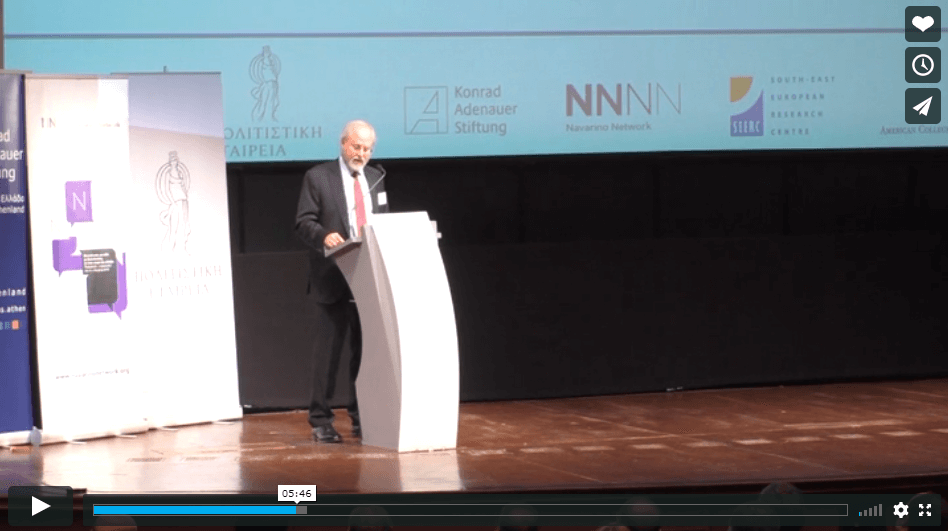
Speaker’s short bio
Ambassador Thrasyvoulos Terry Stamatopoulos is NATO’s Assistant Secretary General for Political Affairs and Security Policy. He is responsible for advising the Secretary General on political issues affecting the security of the Alliance, including NATO’s partnership relations and its interaction with other international organisations; chairing the meetings of Senior Political Advisers of the Allied Delegations at NATO Headquarters; and directing the Political Affairs and Security Policy Division of the NATO International Staff.
Ambassador Stamatopoulos has attended Aristotle University in Thessaloniki, the London School of Economics, McGill University and Georgia State University. He entered the Greek Foreign Service in 1979 and has a distinguished record of public service. Among other posts, he served as Consul General in Alexandria, Head of the External Affairs Section of the Permanent Representation of Greece to the European Union, Director General for European Union Affairs at the Foreign Ministry in Athens, and Ambassador to Bulgaria, just prior to taking up his current position at NATO in September 2013.
Ambassador Stamatopoulos has extensive NATO experience, having served as Minister Plenipotentiary in the Greek Delegation to NATO from 2000 to 2004, and Greece’s Ambassador and Permanent Representative on the North Atlantic Council from 2007 to 2012. He has been particularly closely involved in the development of the new Strategic Concept and NATO’s partnership policy, and worked intimately with colleagues from the region in the context of NATO’s 2011 operation to protect the people of Libya.
Ambassador Stamatopoulos is married and has two sons and a daughter.
13:15 – 14:00 – Lunch break
14:00 – 15:00 – ” The Balkans today: A progress report “
- Florian Bieber,
Professor, University of Graz & Director, Centre for South East European Studies, Austria Discussant:
Laza Kekic
Independent Consultant, formerly EIU Regional Director for Europe, London
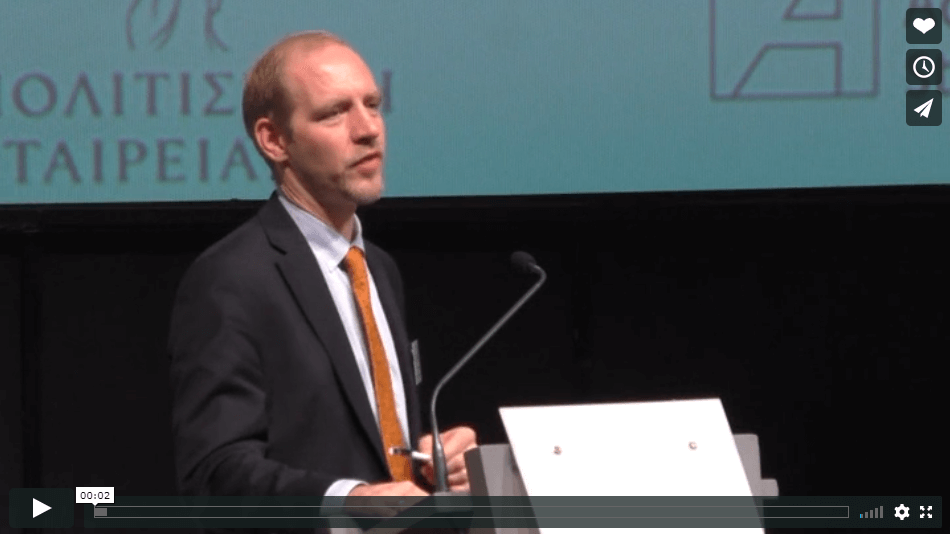
Speaker’s short bio
Florian Bieber is a Professor of Southeast European History and Politics and Director of the Centre for Southeast European Studies at the University of Graz, Austria. He was previously Lecturer in East European Politics at the University of Kent, UK. He received his M.A. in Political Science and History and his Ph.D. in Political Science from the University of Vienna, as well as an M.A. in Southeast European Studies from Central European University (Budapest).
He is the coordinator of the Balkans in Europe Policy Advisory Group (BiEPAG) and has been providing policy advice to international organisations, foreign ministries, donors and private investors.
Between 2001 and 2006, he has been working in Belgrade (Serbia) and Sarajevo (Bosnia-Herzegovina) for the European Centre for Minority Issues. Florian Bieber is also a Visiting Professor at the Nationalism Studies Program at Central European University. In 2010, he has been a Visiting Fellow at the London School of Economics and in 2009 he held the Luigi Einaudi Chair at Cornell University, USA.
15:00 – 16:00 – ” 25 years of post-communist transformations. Is it a success story? “
- Grzegorz Ekiert,
Professor, Harvard University & Director, Centre for European Studies, Boston
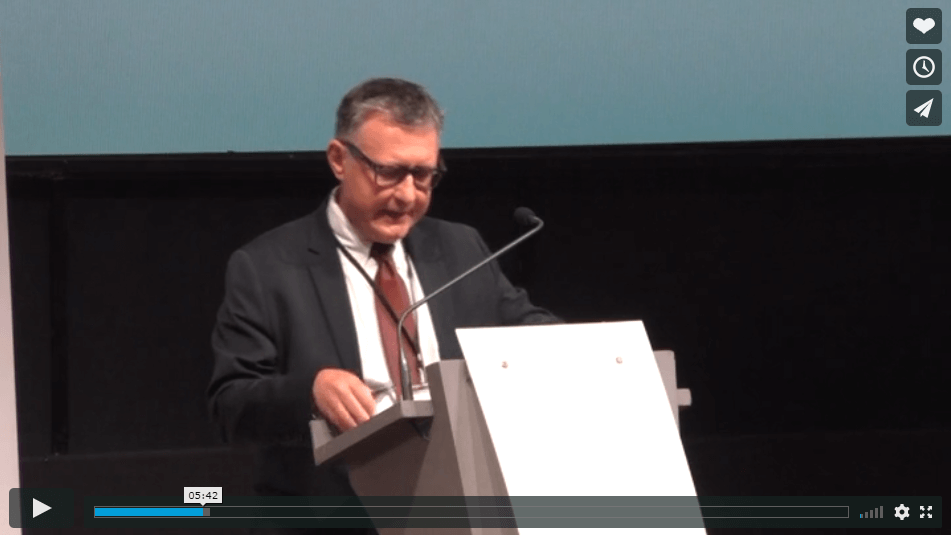
Speaker’s short bio
Dr. Grzegorz Ekiert is Professor of Government, Director of the Minda de Gunzburg Center for European Studies and Senior Scholar at the Harvard Academy for International and Area Studies at Harvard University. His teaching and research interests focus on comparative politics, regime change and democratization, civil society and social movements, and East European politics and societies. He is the author of The State Against Society: Political Crises and Their Aftermath in East Central Europe (1996); Rebellious Civil Society: Popular Protest and Democratic Consolidation in Poland (with Jan Kubik, 1999); Capitalism and Democracy in Central and Eastern Europe: Assessing the Legacy of Communist Rule (co-edited with Stephen Hanson, 2003) and editor of special issues of East European Politics and Societies on the “EU Eastward Enlargement” (with Jan Zielonka, 2003) on “Democracy in Postcommunist World” (2007) and Taiwan Journal of Democracy on “A Liberal Challenge? Civil Society and Grass-root Politics in New Democracies, Authoritarian and Hybrid Regimes” (with Sunhyuk Kim, 2013). His papers appear in numerous social science journals and edited volumes. His current projects explore civil society development in new democracies in Central Europe and East Asia and patterns of transformations in postcommunist world. He was Chair of the Committee on Degrees in Social Studies (2000-2006); he is Chair of the Standing Committee on European Studies, Senior Faculty Associate at the Davis Center for Russian and Eurasian Studies, member of the Executive Committee at the Weatherhead Center for International Affairs, all at Harvard University, and Member of the Club of Madrid Advisory Committee.
16:00 – 16:30 – Coffee Break
16:30 – 18:00 – “Report on a changing Middle East“
- Anne Barnard,
Beirut Bureau Chief, The New York Times, Beirut
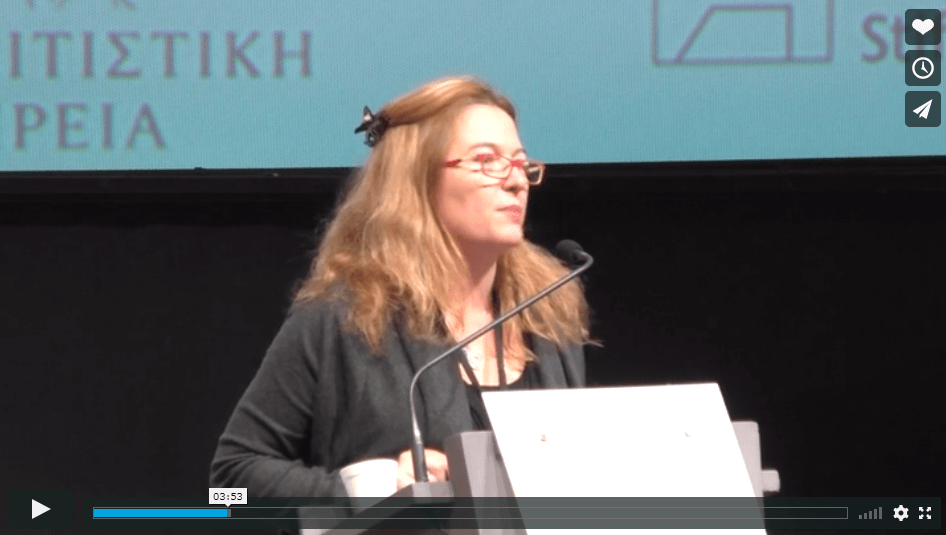
Speaker’s short bio
Anne Barnard is The Times’ Beirut bureau chief covering Syria, Lebanon and other parts of the Middle East region. She studied Russian at Yale University and began her reporting career at The Moscow Times, covering post-Soviet turmoil from 1993 to 1995. She worked for The Philadelphia Inquirer from 1996 to 2000, then joined the Boston Globe and served as Baghdad bureau chief and Middle East bureau chief. Ms. Barnard joined the Times in 2007, while in 2010 she received Columbia University’s Meyer “Mike” Berger Award for her year-long series about the Haitian earthquake. Her recent overseas work includes coverage of Syria, Lebanon, Libya, Haiti and Russia.
“The new Middle East after the Arab Spring“
- Thanassis Cambanis,
Journalist, Beirut & Adjunct Professor, Columbia University, New York
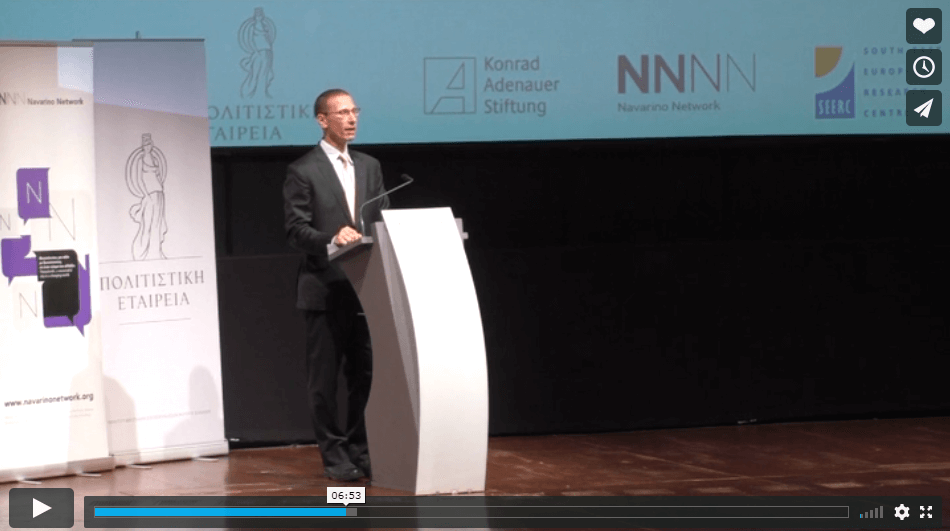
Speaker’s short bio
Thanassis Cambanis is a journalist specializing in the Middle East and American foreign policy, and a fellow at The Century Foundation. He writes a column for The Boston Globe Ideas section called “The Internationalist,” and is also a correspondent for The Atlantic. He contributes regularly to other publications including The New York Times, Foreign Affairs, and The National Interest. Currently he is working on a book about the effort to build a new political order in Egypt after the January 25 uprising drove Hosni Mubarak from power. He has published a book about Hezbollah called A Privilege to Die.
Mr. Cambanis teaches at Columbia University’s School of International and Public Affairs and at the New School’s Graduate Program in International Affairs.
The Kurdish Spring: Engaging Kurds against the Islamic State
- David L. Phillips,
Director, Program on Peace-building and Rights, Institute for the Study of Human Rights, Columbia University, New York
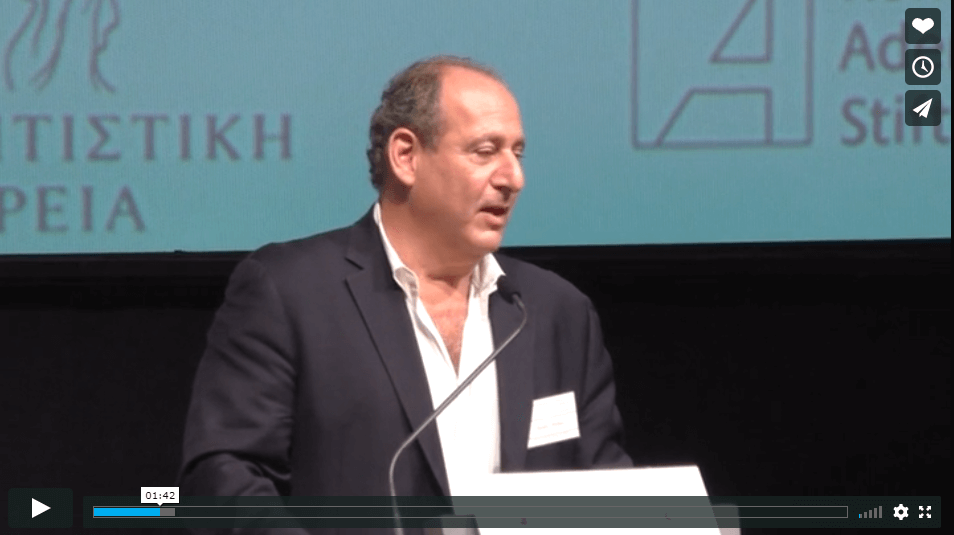
Speaker’s short bio
David L. Phillips is currently Director of the Program on Peace-building and Rights at Columbia University’s Institute for the Study of Human Rights. Phillips has worked as a senior adviser to the United Nations Secretariat and as a foreign affairs expert and senior adviser to the U.S. Department of State. He has held positions as a visiting scholar at Harvard University’s Center for Middle East Studies, executive director of Columbia University’s International Conflict Resolution Program, director of the Program on Conflict Prevention and Peace-building at the American University, Associate Professor at New York University’s Department of Politics, and as a professor at the Diplomatic Academy of Vienna. He has also been a senior fellow and deputy director of the Council on Foreign Relations’ Center for Preventive Action, senior fellow at the Atlantic Council of the United States, senior fellow at the Center for Strategic and International Studies, director of the European Centre for Common Ground, project director at the International Peace Research Institute of Oslo, president of the Congressional Human Rights Foundation, and executive director of the Elie Wiesel Foundation. Mr. Phillips is author of From Bullets to Ballots: Violent Muslim Movements in Transition (Transaction Press, 2008), Losing Iraq: Inside the Postwar Reconstruction Fiasco (Perseus Books, 2005), Unsilencing the Past: Track Two Diplomacy and Turkish-Armenian Reconciliation (Berghahn Books, 2005). He has also authored many policy reports, as well as more than 100 articles in leading publications such as the New York Times, Wall Street Journal, Financial Times, International Herald Tribune, and Foreign Affairs.
18:00 – 19:00 – The Russia-West relations after the Ukrainian crisis
- Nadia Arbatova,
Head, Department on European Political Studies, Institute for World Economy & International Relations (IMEMO), Moscow
Discussant:
Laza Kekic
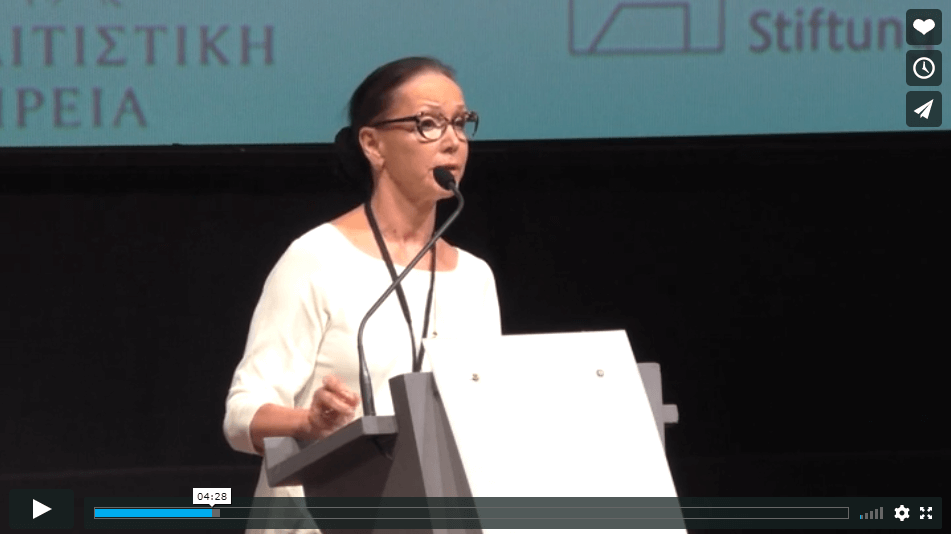
Speaker’s short bio
Nadia Arbatova holds a PhD in Political Science and is currently Head of the European Political Studies Department at the Institute for World Economy and International Relations (IMEMO), Russian Academy of Sciences. She is also Vice-President of the Russian Pugwash Committee, Director of the Discussion Forum “European Dialogues”, and a Member of Council on Foreign and Defense Policy.
Nadia Arbatova is the author of numerous publications including four individual monographs and brochures on the EU-Russia relations, European security, the Black Sea-Balkan region and Russia’s foreign policy. Her professional interests include: international relations, European integration, the EU-Russia relations, European security, Russian foreign policy, conflict prevention.
19:00 – End of the Symposium
Multimedia


